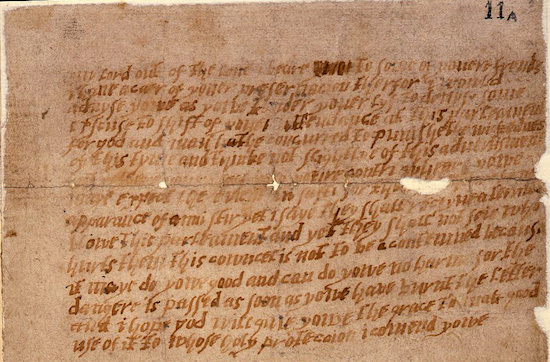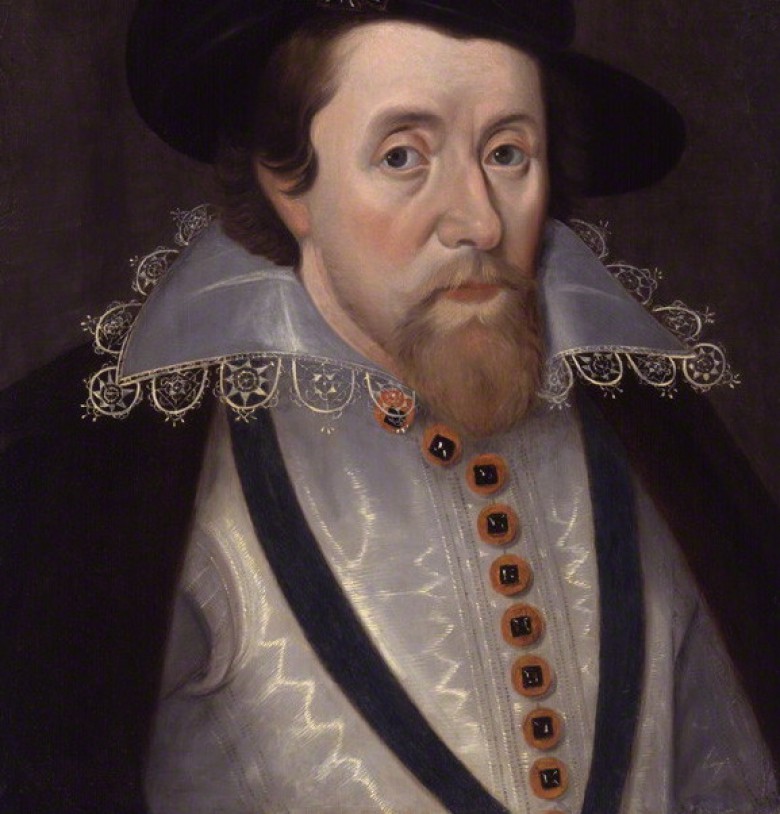5th November 2015

Remember, remember the fifth of November… the old rhyme recalls the Gunpowder Plot of 410 years ago. James I (VI of Scotland), son of Mary Queen of Scots, had been on the English throne just two years. Separated from his Catholic mother as a baby, James had been raised Protestant, but his arrival in England (with his possibly-Catholic wife, Anne of Denmark) led to hopes of new tolerance for Catholics. Early on, he abolished the fines enforced under Elizabeth for Catholics who refused to attend Protestant services. But Protestant advisors like Robert Cecil encouraged him to take a harder line, and Catholic hopes were dashed when he renewed their oppression.
In response, a small group of Catholics planned an act of terrorism – they would blow up the House of Lords, with the king inside, at the opening of Parliament on the 5th November 1605. They were foiled when Lord Monteagle revealed an anonymous letter warning him to stay away. Cecil waited, and then on the 4th November ordered the Houses of Parliament searched – Guy Fawkes was found with barrels of gunpowder and arrested. News of the near-disaster was used to boost anti-Catholic feeling which in some circles endures to this day. I wrote my own possible take on the plot's convenient unearthing in Earthly Joys, the first of my two Stuart novels. I think that Cecil, a master plotter and the son of the great William Cecil, organised and orchestrated this 'act of terror' and his version of events has come to be accepted as 'history'. Here's my description of him sending John Tradescant fire-proofing in Earthly Joys:
Cecil summoned him with a crook of his long finger. 'I have a small task for you today and then you can go back to Theobalds,' he said.
John waited.
'There is a little room in Whitehall where some kindling is stored. I should like it damped down to prevent the danger of a fire.'
John frowned, his eyes on his master's impish face. 'My lord?'
'I've got a lad who will show you where to go,' Cecil continued smoothly. 'Take a couple of buckets and make sure the whole thing is soaked through. And come away without being observed, my John.'
'If there is a danger of fire I should clear it all out,' John offered. He had the sense of swimming in deep and dangerous water and knew that this was his master's preferred element.
'I'll clear it out when I know who laid the fire in the first place,' Cecil said, very low. 'Just damp it down for me now.'
'Then I'll get back to my garden,' Tradescant said.
Cecil grinned at the firmness of the statement. 'Then your job is finished here, go and plant something. My work is coming into its flowering time.'
Image of the Monteagle letter from The National Archives; Portrait of King James I of England and VI of Scotland after John De Critz the Elder c.1606, National Portrait Gallery 548.
